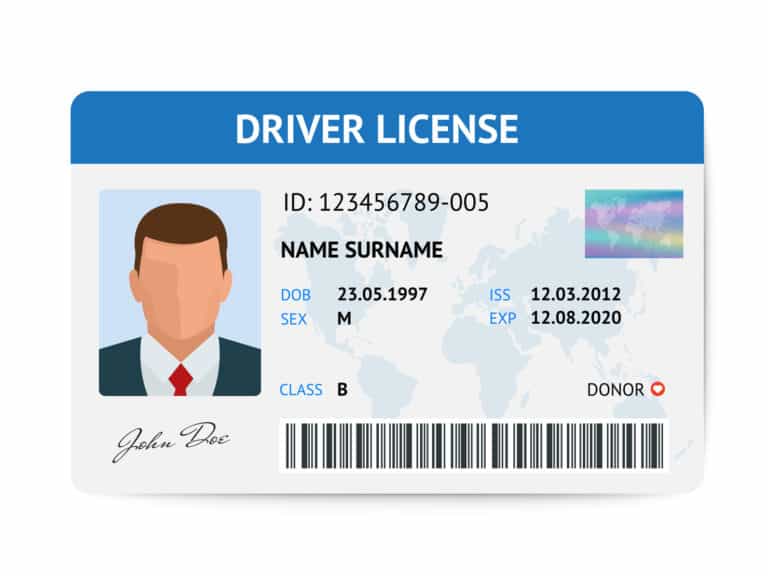
To win a DMV hearing in Texas and avoid a driver’s license suspension, you must ensure that the Department of Public Safety (TxDPS) fails to meet its burden of proof that you were intoxicated while driving a vehicle in public.
What Are the Steps I Should Take to Win a DMV Hearing?
Follow these seven steps to fight for the best possible outcome at your DMV hearing (more commonly known as an Administrative License Revocation [ALR] hearing).
- Request an ALR hearing.
- Schedule your hearing on-time.
- Consider enlisting the help of a DMV hearing lawyer.
- Subpoena relevant witnesses.
- Request records from TxDPS.
- Prepare your testimony.
- Make a persuasive case.
If you enlist the help of an ALR hearing lawyer, he will handle every step in the process for you, bringing experience and in-depth legal knowledge to bat for you.
Why Do I Have to Attend a Texas DMV Hearing?
If the police pull your car over for suspicion of drunk driving, an officer will attempt to determine whether you may be legally intoxicated. If the officer believes that you are not capable of safely operating your vehicle, they will place you under arrest and request that you submit to chemical testing for blood alcohol content (BAC).
If you refuse to submit or if your BAC reading is 0.08 or above, the officer will take your license immediately and issue you a temporary driving permit. This triggers a process known as Administrative License Revocation (ALR).
Scheduling a hearing is your only opportunity to argue against the suspension of your driver’s license.
Otherwise, you could lose your license for up to two years, depending on the nature and severity of the DWI charges pending against you.
How and When Do I Schedule a DMV Hearing in Texas?
The temporary driving permit issued to you by the police — known as form DIC-25 — provides the instructions for scheduling your DMV hearing with the Texas Department of Public Safety (TxDPS).
You must request your hearing within 15 days of your arrest. Otherwise, DPS will automatically suspend your license after 40 days.
You can schedule your hearing in one of two ways:
- Request your hearing by mail
- Request your hearing online
In either case, TxDPS will confirm your request by mail, using the address it has on file for you. If TxDPS has the wrong address in its database, you may never receive your confirmation.
What Happens at My Texas DMV Hearing?
Your DMV hearing will take place at the Texas State Office of Administrative Hearings (SOAH) or a location near you, as designated by the SOAH. An administrative law judge (ALJ) will oversee the proceeding.
TxDPS will have its attorney there to defend your suspension. To potentially give yourself a better chance of reversing your suspension, you should consider having a DWI lawyer present on your behalf.
During the hearing, both sides will offer sworn testimony regarding the details of the DUI traffic stop and your arrest. Using the statements provided, the ALJ will rule on the disposition of your driver’s license.

How Do I Prepare for My Texas DMV Hearing?
Because you must make a strong case on your behalf to avoid suspension of your driver’s license, you must carefully prepare for the proceeding.
Subpoena witnesses: Specifically, you need the arresting officer in your case to attend and provide testimony, along with anyone else that has important information to provide. Unless you subpoena the officer, the TxDPS attorney will present evidence in the form of the officer’s written statement, which does not allow you the opportunity to question the officer.
Request records: You must request evidence and documents from TxDPS, a legal process known as discovery. Records typically include the officer’s arrest report, dash cam video (if applicable), your driving record, etc.
Prepare testimony: The prosecutor in your criminal DWI case can use any of your sworn testimony against you in your criminal trial. By preparing your testimony, you can avoid making any self-incriminating statements during your DMV hearing.

What Must I Prove to Win My DMV Hearing in Texas?
Although the specific issues of your driver’s license suspension hearing will determine how best to make your case, TxDPS must meet a burden of proof that typically includes questions such as the following:
- The police had reasonable suspicion to pull you over.
- The police had probable cause to arrest you.
- The police did not violate your legal rights during the arrest.
- That you met the statutory definition of DWI.
To prove the last portion of its case, TxDPS must show that you:
- drove a vehicle
- in a public place
- with a BAC of 0.08 or above
To ensure that TxDPS does not meet its burden of proof, you must present evidence that disputes these elements and introduces reasonable doubt to the ALJ. A DWI lawyer can help you build a persuasive case and introduce reasonable doubt.
What Will a Texas DMV Hearing Lawyer Bring to Your Case?
A Texas DMV lawyer will handle all the steps necessary to fight for the best outcome in your hearing. In addition to scheduling your hearing and preparing your testimony, your lawyer will also prepare you for testimony and cross-examine the officer to obtain the most valuable information possible.
Most importantly, your lawyer can dissect the evidence in your case to find the best approach for introducing reasonable doubt and making sure TxDPS does not meet its burden of proof.
The Law Offices of Randall B. Isenberg fights for Texas clients facing DWI license suspensions. For a free consultation, contact us today at 214-696-9253.










